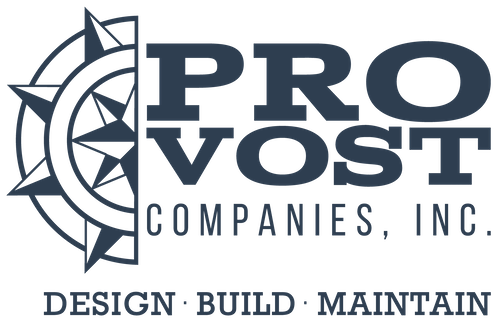Transforming Your Space: A Guide to Basement Remodeling
The basement, often overlooked and underutilized, holds immense potential for expanding your living space and enhancing the functionality of your home. Basement remodeling is a creative endeavor that can breathe new life into this often-neglected area. Whether you’re dreaming of a cozy family retreat, a home office, a gym, or an entertainment hub, a well-planned basement renovation can turn your vision into reality. In this guide, we’ll explore the benefits of basement remodeling, important considerations, design ideas, and key steps to take for a successful transformation.
Benefits of Basement Remodeling
1. Increased Living Space: One of the most significant advantages of a basement remodel is the additional living space it offers. As your family grows or your needs change, a finished basement provides the flexibility to accommodate new uses without altering the footprint of your home.
2. Return on Investment: A properly executed basement renovation can yield a strong return on investment (ROI). Adding functional living space can increase your home’s overall value, making it a wise financial decision.
3. Customization: Your basement is a blank canvas, waiting for your creative touch. Whether you envision a home theater, a wine cellar, a playroom, or a guest suite, the basement allows you to design a space that aligns with your lifestyle and preferences.
4. Energy Efficiency: Basement remodeling often involves improving insulation and ventilation, which can lead to better energy efficiency. A well-insulated basement can help regulate the temperature in your home and lower utility costs.
5. Noise Isolation: Basements are naturally separated from the main living areas, making them ideal for activities that might generate noise. This includes home theaters, music studios, or even a workshop.
Featured Project
Project 0522 was a complete basement renovation that converted the existing space into an in-law suite. The project included a master suite, featuring a new master bath and walk in closet, as well as a new kitchenette and living area.
Important Considerations
Waterproofing:
Before embarking on a basement remodel, ensure that your basement is properly waterproofed. Address any existing water-related issues to prevent future damage and mold growth.
Building Codes and Permits:
Your basement remodeling contractor will check with your local authorities to understand the building codes and permit requirements for basement remodeling. Compliance ensures a safe and legal renovation.
Structural Integrity:
A trained professional is needed to assess the structural integrity of your basement. Address any foundation or structural issues before beginning the remodeling process.
Lighting and Ventilation:
Basements tend to have limited natural light. Consider incorporating ample artificial lighting and ventilation solutions to create a bright and inviting space.
Accessibility:
If you plan to use your remodeled basement for long-term living, your basement remodeling contractor will work with you to add proper egress windows or exits to ensure safety and compliance.
Design Ideas
Home Theater:
Create a cinematic experience with a dedicated home theater space complete with comfortable seating, surround sound, and a large screen.
Home Office:
Design a functional workspace that promotes productivity and creativity. Incorporate built-in storage solutions and ergonomic furniture.
Fitness Center:
Transform your basement into a personal gym with exercise equipment, mirrors, and rubber flooring.
Entertainment Hub:
Build a game room or entertainment lounge with a pool table, bar area, and cozy seating for gatherings.
Guest Suite:
Create a welcoming guest retreat with a bedroom, bathroom, and sitting area for visiting friends and family.
Steps to a Successful Basement Remodel
Planning and Design:
Define your goals, create a budget, and work with a professional basement remodeling contractor, designer or architect to develop a detailed remodeling plan.
Waterproofing and Structural Improvements:
Address any water-related issues and ensure the basement’s structural integrity before proceeding.
Insulation and Wiring:
Improve insulation for energy efficiency and upgrade electrical wiring to accommodate your desired layout and technology needs.
Flooring and Walls:
Choose appropriate flooring materials, such as laminate, carpet, or tile, and finish walls with drywall, paint, or decorative panels.
Lighting and Fixtures:
Install a combination of ambient, task, and accent lighting to create a well-lit and inviting atmosphere. Choose fixtures that complement your design style.
Furniture and Décor:
Furnish the space with comfortable furniture that suits your chosen function. Add decorative elements, such as artwork, rugs, and accessories, to personalize the area.
Final Touches:
Complete the renovation with any finishing touches, such as trim, baseboards, and final paint touch-ups.
Basement remodeling offers a world of possibilities for expanding your home’s living space and enhancing its functionality. By carefully considering important factors, developing a solid plan, and incorporating innovative design ideas, you can transform your basement into a captivating and functional area that meets your family’s needs and lifestyle. Whether you’re aiming for a home theater, a home office, a gym, or any other creative vision, a well-executed basement remodel can add value, comfort, and enjoyment to your home for years to come.
Areas We Serve
WE SERVICE A 50 MILE RADIUS AROUND BOSTON INCLUDING STOUGHTON, CANTON, FOXBORO, EASTON, MANSFIELD, SHARON, NORWOOD, RANDOLPH, AVON, HOLBROOK, DEDHAM, WESTON, WELLESLEY, BOSTON, BRIDGEWATER, BROCKTON, WESTWOOD, COHASSET, HINGHAM, NEEDHAM, NORWELL, DOVER, MILTON, WATERTOWN, WEYMOUTH, WELLESLEY AND MANY MORE.
